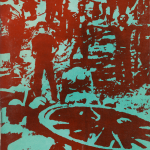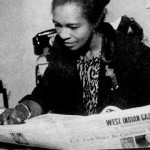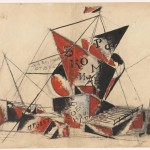
The Search for a Useable Past: An Interview with Paul Buhle on Radical America
We founded Radical America in the 1960s to recuperate what was called, by radical historians in those years, a “useable past,” that is, something to build upon.

We founded Radical America in the 1960s to recuperate what was called, by radical historians in those years, a “useable past,” that is, something to build upon.

The Re-encounter of Indianismo and Marxism in the Work of Álvaro García Linera • The Phantom, The Plebeian and the State: Grupo Comuna and the Intellectual Career of Álvaro García Linera • Burdens of a State Manager

By Irina Alexandra Feldman. In his important article about the history of Marxism and Indianismo in Bolivia, Álvaro García Linera tells the story of the “missed encounter of the two revolutionary reasons.” He presents the post-colonial Bolivian context as a space of complex engagements for the Marxist tradition.

By Robert Cavooris. Álvaro García Linera, vice-president to Bolivia’s Evo Morales, was perhaps the first Marxist intellectual to sit in state power in the 21st century. His work reflects a continued engagement with a unique political experiment in Bolivia, and can be read, therefore, as a guide to a terrain on which some are trying to plow an eventual road to socialism. It is the wager of this dossier, therefore, that much can be learned by more closely examining both Linera’s theory and his political practice – not only to understand the man himself, but also, to understand the innovative political process from which he cannot be separated, and which may portend something of the future for the electoral Left in other parts of the world.

By Jeffery R. Webber. The prolific writings of Vice-President Álvaro García Linera offer one window into the complexities of the political, ideological, and economic developments that have transpired since Morales first assumed office. With that in mind, the following detailed exposition and critical interrogation of the core arguments advanced in his 2011 book, Tensiones creativas de la revolución , is meant to shed some light on what is at stake in the competing characterizations of the “process of change” unfolding in Bolivia since 2006.

By Peter Baker. In 1999, a collection of essays appeared concerning the relevance of Karl Marx’s Communist Manifesto to the contemporary conjuncture in Bolivia. It may have gone by unnoticed, were it not for the fact that its authors were about to become the principal interpreters of the new movements that irrupted in the wake of the Bolivian state crisis of 2000-2005.

Marxism-Leninism exposes the core of the woman question and shows that the position of women in society is not always and everywhere the same, but derives from woman’s relation to the mode of production.
Tags: From the Archives

We feel that hope has come and we think it’s a great opportunity for the working class to start breathing. Now we are fighting from a better position, but we are still fighting.

Claiming wages for the free labor of reproduction was meant to explode the measurement of wages as such and, with this, bargaining over relations of exploitation. The feminists targeted the myth of the contract.

The deep social and political crisis in Greece, as a “cathartic” moment, also offers the possibility for a different social and political road away from neoliberalism and debt-driven consumerism.